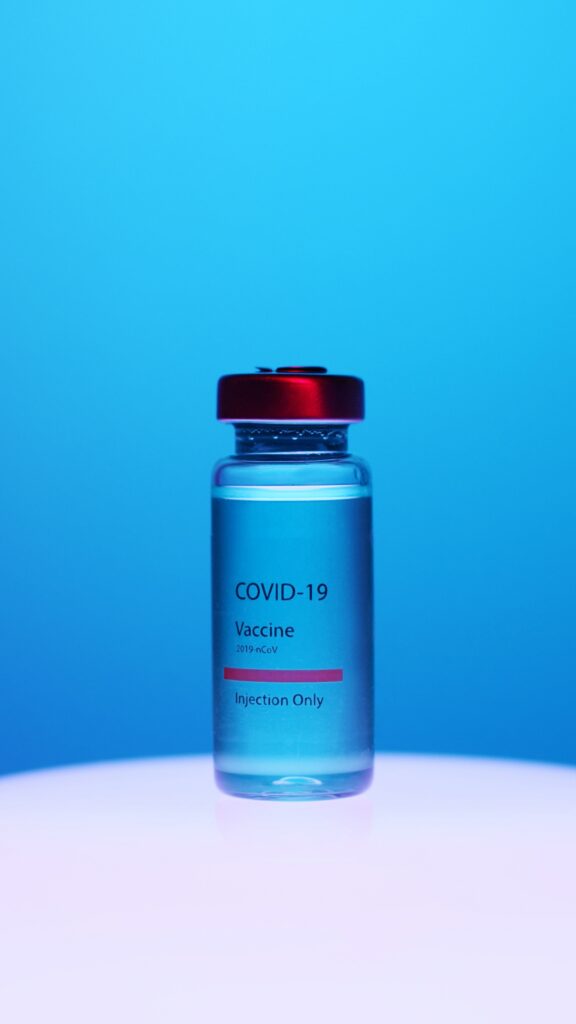The older we get, the more susceptible we become to illnesses and diseases. The reason is that seniors have a more weakened immune system compared to when they were younger. Seniors may also have a harder time fighting off the common cold as quick as someone in their teens. This is why it is so important to get the right vaccines or vaccinations to stay healthy, while protecting yourself from sickness or death. There many types of vaccines, but first let’s talk about why do people, especially seniors, need to get a vaccine.
Why do I need to get vaccines?
As just mentioned, vaccinations can help people stay healthy and offer some protection from certain diseases or illnesses. Not getting these vaccinations may cause serious implications to your help. Seniors may also develop certain complications related to their health if they don’t get vaccinated. However, not all vaccinations are right for every person. Speak with your primary care provider on which vaccines are right for you. Keep in mind, many diseases are common among the elderly, so having vaccines or vaccinations could help prevent or at least reduce the chances of being diagnosed with a serious condition. Seniors should also be aware the protection that certain vaccines provide wear off over time. Sometimes a booster is necessary to stay protected from diseases or illnesses. Always stay up to date with the vaccines that your doctor recommends for you.
Which vaccines should older adults get?
Flu vaccine
The Flu, which is short for influenza, is a virus that may cause another of symptoms to occur throughout your body. Examples of these symptoms are fever, chills, headaches, sore throat, stuffy nose, and muscle aches. Most of the time the flu will affect the respiratory system, specifically the lungs. Anyone can get the flu; however, seniors or older adults over 65 are more inclined to develop and experience serious complications, such as pneumonia if diagnosed. There are some vaccines which may only be necessary once in a life, like the polio vaccine.Unfortunately, the flu strand changes every year. So, it may be a good idea to get the vaccine each season. Especially that it is often easy to pass the virus from person to person.

Shingles vaccine
It is estimated that one in 3 people will get shingles, especially after the age 50. Shingles comes from the childhood disease or condition known as Chickenpox. Many children who ever had chickenpox as a child, are more susceptible to getting the Shingles virus as an older adult. It could be a very unpleasant disease, affecting millions each year nationwide and globally. The good news is that not everyone who had Chickenpox gets shingles. However, to keep you safe and healthy, it is highly recommended for people over 50 to get the Shingles vaccine, so they are protected from the virus. If you believe that you may shingles, contact your primary care doctor as soon as possible. Treatment is available to those going through this disease. Common symptoms of the Shingles are Fluid-filled blisters; Burning, shooting pain; Sensitive to touch, tingling, mild itching, or numbness of the skin; Chills, fever, headache, or upset stomach; Fatigue; Sensitivity to light. There are a few potentially dangerous complications to the shingles virus to be aware of; these include Pneumonia, Depression, Hearing problems, Vision problems, Toxic shock syndrome, and Brain inflammation. To learn more about the Shingles disease and how it affects the body, click the link!
MMR vaccine
The acronym MMR stands for measles, mumps, and rubella. The MMR vaccination will help a person be protected against these diseases. The vaccine is often given to a child within their first year of life, and a second dose from 4 through 6 years of age; however, seniors can also benefit from this vaccine, since they are at a higher risk for these diseases and can develop serious complications if found diagnosed with any combination of MMR. Some serious complications to measles mumps and rubella are Pneumonia, brain damage, deafness, and inflammation of the brain. Swelling around the genital areas are also possible. Most of the time one dose is enough; however, some seniors will need 2 doses of the vaccine, if they have a weakened immune system. Certain adults and mid-life individuals should also consider getting the MMR vaccine, such as those working as healthcare personnel or international travelers.
Pneumonia vaccine

Pneumococcal disease is an airborne disease that is easily spread from one person to another. Although anyone can catch this, older adults are highly susceptible to this condition. The disease can cause pneumonia to build up in the lungs, and also spread through the rest of the body. Many seniors can get seriously sick or die from this condition. Those with a pneumonia disease may experience several infectious disorders. These include Sinusitis (sinus infection), Otitis media (ear infection), Meningitis(affecting the brain or spinal cord) , and Bacteremia (blood infection). According to the CDC, seniors over 65 are recommended to get this vaccine, since there are multiple forms of the disease that are fatal to the elderly. The pneumococcal conjugate vaccine, as some call it, is sometimes given to children. Children receive the PCV13 or PCV15, whereas adults more likely will receive the PCV20. Seniors who had the PCV15 when they were younger should then follow-up by taking a dose of PPSV23.
Tdap: Tetanus, dipheria, and pertussis
Another vaccine that is common for seniors to consider is the Tdap. Also called Td, the Tdap can provide protection against some diseases that can be fatal to the older adult, especially if they do not seek proper care or treatment right away. This is a 3-part vaccination. Tetanus, is the first part of the vaccine. It is sometimes referred to lockjaw. Symptoms of Tetanus is tightening of the muscles, making it hard to swallow, move, or even breathe. The second part is diphtheria, causing a thick coating of mucus to form in the back of the throat. Commonly affecting the tonsils, throat, nose, or skin. This too can cause people with it find it impossible to breathe. The last and third part of the vaccine is pertussis. Many healthcare professionals commonly refer this to whooping cough. Severe and violent coughing is common and can lead to many complications, such as rib fractures, difficulty breathing, vomiting, and pneumonia. All these illnesses can be passed from person to person and can enter the body through a deep cut or burn. The Tdap or Td vaccine should be offered at least once every 10 years to help prevent sickness or death. Talk to your health provider if you may need a booster shot for it.
COVID-19 vaccines

COVID-19 is a respiratory disease that plagued the world over the last couple years.There is no known cure for this disease, however, there are different vaccines to help protect you from the disease. Symptoms of the disease can reflect the common cold, in some cases. Especially if you have mild signs of the virus.Getting the vaccine can help ease the pain it has on a person’s health. If you are diagnosed with COVID, the disease can cause symptoms such as fever, coughing, hot sweats, and shortness of breath. Although anyone can get this disease, it does affect the elderly or those with compromised health conditions more. The CDC states that the COVID-19 vaccines may reduce the risk of getting it.
There are four types of COVID-19 vaccines that are available to the public. One comes from Novavax, one from Pfizer-BioNTech, one from Johnson & Johnson, and one from Moderna. However, most Americans have received the Moderna or Pfizer ones. Johnson & Johnson is used in certain situations. Booster shots are required on some of the vaccines, such as the Novavax, Moderna and Pfizer options. However, the vaccine of COVID-19 is still new, and scientists are still learning about the effectiveness of the vaccine. This includes learning about the affects of the disease and its variants of the virus as well. Seniors may also need to have booster shots of the vaccine to stay protected from the disease.
Other reasons why You may need vaccines:
- Have a long-term health condition like diabetes or heart, lung, or liver disease
- Didn’t get all your vaccines when you were a child
- Have a health condition that makes it harder for your body to fight off infections — like HIV or problems with your spleen
- Are a man who has sex with men
- Smoke
- Drink heavily or have alcohol use disorder
- Spend time with infants or young children
- Travel outside the United States
Important information about Vaccines for Travelers

We all know that when seniors hit retirement age, many of them love to travel, whether by visiting family or just taking a vacation. However, seniors should still be aware of who they may come in contact while traveling. Always check with your primary doctor before you travel, even if it is just domestically. Ask questions, like which types of vaccines you may need, especially when going to visit certain countries. If you do travel globally, take with you a list of medications you are presently on, any allergy reactions you may have to certain foods or medications, and a record of all the vaccinations you need or had in the past. If you do need a vaccine to travel, it is best to have them done at least four to six weeks before leaving on your trip. This is important, because while you wait, your body will have time to build up immunity to the vaccine and stay protected longer. Depending where you are heading, multiple doses may be required.
Working professionals may need a vaccine if they work at:
- Hospital or clinic
- Nursing home
- Prison
- School or daycare center
Other vaccines for Seniors
- Hepatitis A vaccine: This disease is known to affect the liver. Those 50 and older are more at risk of the disease, especially if they have been around infected individuals. The vaccine is offered in two doses, about six months apart. The disease is common among travelers who visit other countries, where the hepatitis A virus is easily transmittable.
- Hepatitis B vaccine: It is transmitted through bodily fluids, such as blood, semen, and saliva, from a person who is already infected with the hepatitis B virus. There are three doses of the Hepatitis B vaccine. The second dose is offered four weeks after the first, then the third one is given five months after the second.
- Polio vaccine: many people in the early 20th century got polio, and there was no vaccine for it until the 1950s. So, if you feel you may be susceptible to this disease, you should get the Polio vaccine.
- Lyme disease vaccine: according to the CDC, there is currently no cure or vaccine for this terrifying disease. However, there are some new studies being done and both Valneva and Pfizer are working on a vaccine to help protect people from it.
- Measles and Chickenpox vaccine: most senior will not necessary need these, since most people their have had measles or chickenpox as a child, and they probably have become immune to the disease.

Vaccine safety and side effects
In most cases, vaccines are very safe. People who get vaccinated will have a less chance of getting serious or life-threatening diseases.The most common side effects to vaccines are usually mild. A person may experience pain and notice swelling or redness where the vaccine was given. Those who have an allergic reaction to yeast must talk to their doctor before getting a vaccination; since components of yeast may be in the vaccine. Everyone should consult their doctor if a vaccine is necessary for them to have. Make sure your doctor knows your health history, including any past illnesses or treatments, as well as allergic reactions to foods or medications. Seniors could also keep a log of their own vaccinations they may had previously, including dates of the shots and if their was any side affects that may occurred.
Are vaccines free?
Many insurance plans will cover the recommended vaccines for senior adults, according to the Affordable Care Act. Depending on your plan, it may be little to no cost. Check your insurance company for more details.